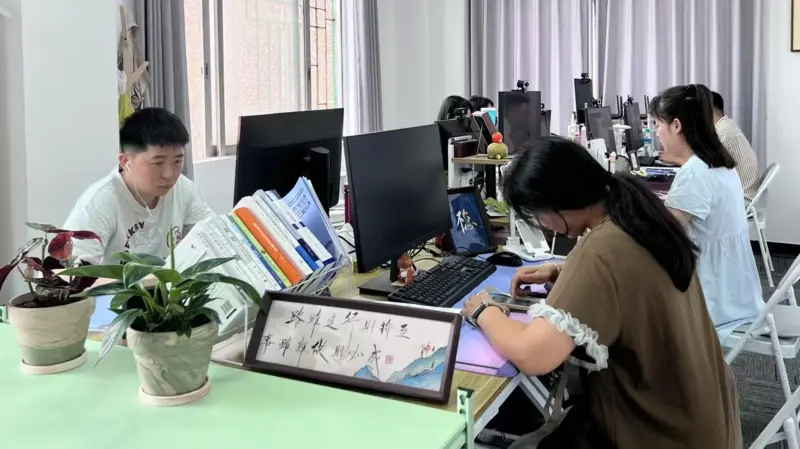
A new trend has gone viral in China: renting “fake offices.” The idea is to make unemployed young people feel busy without actually working.
The youth unemployment rate in China has exceeded its historical high of 14%, so Zoomers have resorted to original methods to find self-employment. But in this case, we are not talking about diligently seeking employment everywhere and always, but about renting offices aimlessly — where you will only pretend to work.
Landlords quickly picked up on the new trend, and such places can be easily rented in Shanghai and other major Chinese cities. Fake offices are properly equipped: they have PCs, internet connections, meeting rooms, lounges, etc. One of these coworking spaces has even been named — Pretend To Work.

Shui Zhou, 30, who lost his catering business last year, has been one of the regular customers of this establishment since April. He rents a workplace for 30 yuan a day (about $4) and meets there with “colleagues” who also create the appearance of work.
“I feel happy. It’s like we’re working together as a real team.”
Chinese economists call this phenomenon a “transitional form of employment,” where people keep a place to “wait it out” or to meet people like them and find new ideas for startups and the like.
Zhou, meanwhile, believes that the office atmosphere helps him stay disciplined during his downtime, which took him about three months — he gets there at 8-9 o’clock and often stays until 11:00 pm. It also helps to calm his family, who are overly concerned about his job loss.
A similar experience is shared by 23-year-old Xiaowen Tan, who rented a workplace in a similar coworking space in Shanghai during her internship at the university. In reality, she pays for the opportunity to sit at a desk and write online novels from time to time.
“If you’re going to pretend, you have to do it to the end,” the Chinese woman jokingly says.
The founder of Pretend To Work, 30-year-old Feiyu, lost his job during the pandemic. He recalls how he became depressed and had no strength to change the situation. In April, he picked up on a new trend and opened a coworking space for “pseudo-work” — within a month, all the places were booked.

Almost half of his clients are university graduates, while the rest are freelancers, aspiring writers, and those who are simply tired of being alone at home. The youngest of his clients is 25 years old, while the oldest is just over 30.
At the same time, Feiyu doubts that he will make a profit from this business in the long run and characterizes it more as a “social experiment.”
“We create an illusion to maintain respect for ourselves. But over time, it will turn into a deception. We have to help people turn it into a real start.”
In this case, Zhou is gradually mastering artificial intelligence, given that many companies consider these skills to be key competencies.
Based on the article BBC.

Spelling error report
The following text will be sent to our editors: